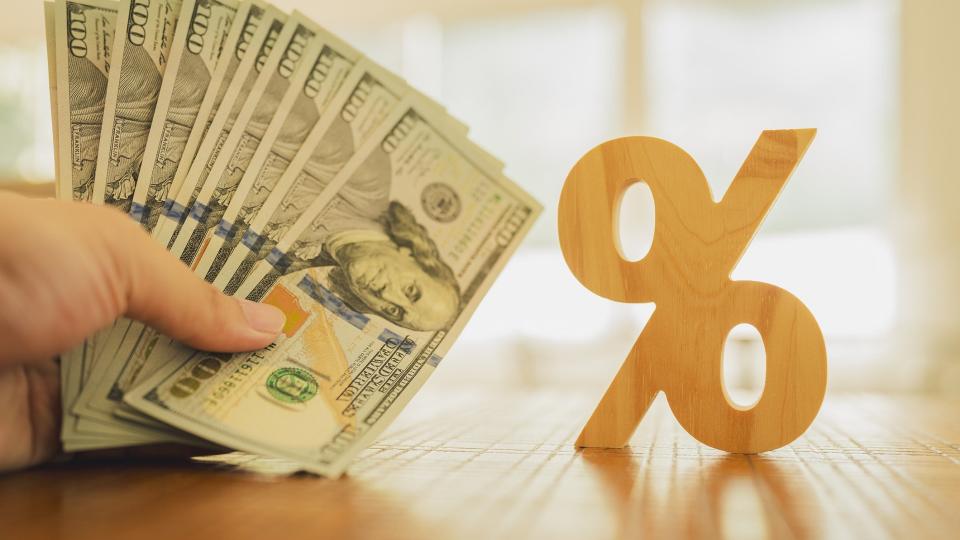Over-Saving: Can You Put Too Much Money in Savings? Here’s What Experts Say

While overspending is a concept many are familiar with, is there such a thing as over-saving? Experts recommend starting to save for retirement as soon as possible to take advantage of compound interest, as well as beefing up an emergency fund — which should cover several months’ living expenses.
But is there a point where too much savings can be counterproductive? And are there any drawbacks in doing so?
Check Out: 5 Frugal Habits of Mark Cuban
Read Next: 5 Genius Things All Wealthy People Do With Their Money
“We want to be careful with the concept of ‘over-saving,'” said Zach Bromley, partner and financial advisor at Broadway Graham Wealth Partners. “While there’s no one-size-fits-all answer to what constitutes ‘excessive’ savings, a general guideline is to ensure a balance between short-term needs, long-term goals and enjoying today.”
Sponsored: Credit card debt keeping you up at night? Find out if you can reduce your debt with these 3 steps
What Are Signs You Might Be Over-Saving?
According to Bromley, over-saving occurs most often when individuals hoard cash at the expense of other financial priorities or experiences that could enhance their quality of life.
“It’s important to evaluate whether excess savings are hindering progress toward other financial goals,” he said. “So instead of letting excess savings sit idle, you can consider putting them to work in ways that align with your financial goals.”
Although most people agree that saving money is a good financial practice, there is such a thing as excessive saving, said Taylor Kovar, CFP, founder and CEO of 11 Financial.
“Hoarding cash without considering the possibility that inflation would eventually reduce its purchasing power… can also be a form of over-saving,” he said.
Learn More: Warren Buffett: 6 Best Pieces of Money Advice for the Middle Class
What Are the Potential Drawbacks?
Todd Stearn, founder and CEO of The Money Manual, argued that while most of the conversation around retirement is about people who either haven’t saved or haven’t even started, there’s definitely such a thing as saving too much for retirement.
And this can be a problem, because it could result in an increased tax burden, he added. In addition, this could also translate into missing out on things you could have been doing with that money to enjoy or improve your life, he said.
Another type of over-saving involves putting too much money in a savings account.
“First, make sure you’re getting the best rate you can for your savings. The top high-yield savings accounts are paying over 5% right now, vs. a national average of 0.57%,” Stearn said.
Yet, he added that even if you’re getting the best savings rates, you probably don’t need more than six months’ worth of living expenses easily accessible in a savings account.
“Try to make your funds beyond that work harder for you in a diverse investment portfolio,” he said.
While the primary argument against over-saving is centered on the opportunity cost — money in low-yield savings accounts that could potentially yield higher returns if invested in stocks, bonds, real estate or other investment vehicles — psychologically, excessive saving can also impact the quality of life, said Erika Kullberg, attorney, personal finance expert and founder of Erika.com.
“If individuals are curbing their spending to the extent that it affects their day-to-day happiness and ability to enjoy life, it may be worth reassessing their saving habits,” added Kullberg.
How Can You Find a Happy Medium?
People should make an effort to find a balance between living in the now and saving for the future, rather than hoarding money, said Kovar. For instance, prioritizing financial goals such as setting up an emergency fund, paying off high-interest debt and making retirement investments is important, but so is setting aside money for pleasure and experiences.
“If people find that they are regularly saving more money than they require for their financial objectives, they should think about putting extra money toward activities that will improve their lives or higher-yielding investments like stocks, bonds or real estate,” he added.
In addition to these investments, Kullberg said that boosting contributions to retirement accounts such as IRAs or 401(k)s can also be a wise move, especially if you are not already maxing out these options.
“These accounts often offer tax advantages and compound over time, sweetening your financial security in retirement,” she added.
More From GOBankingRates
Why Florida's Retirees Are Fleeing -- And Where They're Going Instead
Here's How to Add $200 to Your Wallet -- Just For Banking Like You Normally Would
This article originally appeared on GOBankingRates.com: Over-Saving: Can You Put Too Much Money in Savings? Here’s What Experts Say

 Yahoo Finance
Yahoo Finance 